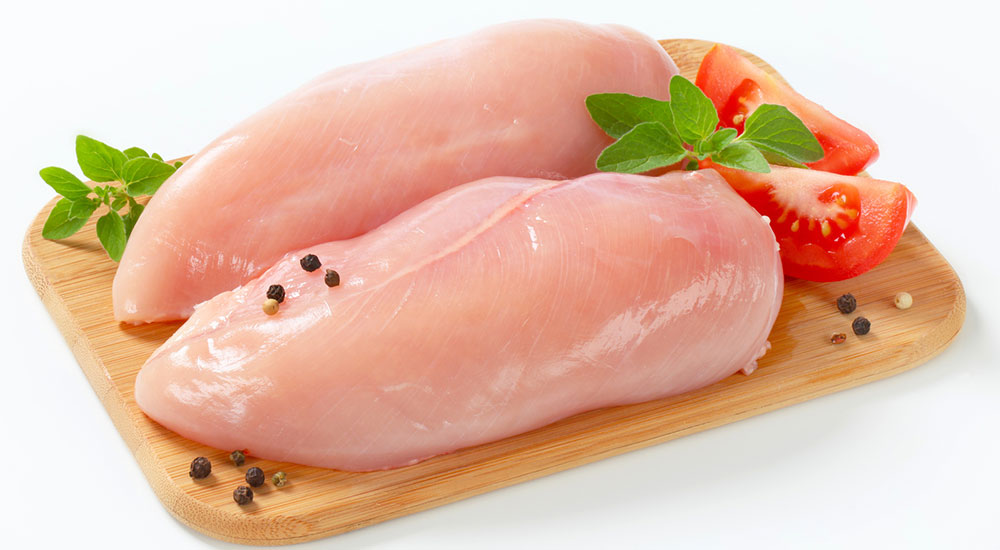Salmon with Spicy Cucumber-Pineapple Salsa
- 13 Apr - 19 Apr, 2024

Chicken provides 215 calories per 100gm; 15g of fat, 75mg of cholesterol, 189mg of potassium, 70mg of sodium and 18g of protein.
· This bird was probably first domesticated for the purpose of cockfights, not as food.
· Chickens aren’t completely flightless—they can get airborne enough to make it over a fence or on a tree.
· These birds are omnivores. They’ll eat seeds and insects but also larger prey, like small mice and lizards.
· With 25 billion chickens in the world, there are more of them than any other bird species.
· Avian influenza (a.k.a. bird flu) is extremely contagious and can make chickens very sick and kill them. The highly pathogenic form of the disease can kill 90-100 per cent of birds in a flock in just 48 hours.
• Chicken is one of the best foods for protein. Protein plays an important role in our diet. It is made of amino acids, which are the building blocks of our muscles.
• Chicken is not only a good source of protein but is also very rich in vitamins and minerals. It contains vitamin C, thiamin, riboflavin, niacin, vitamin B6, folate, vitamin B12, vitamin A, vitamin E, vitamin D and vitamin K.
• The amount of saturated fat and cholesterol found in red meat is much higher than the levels found in chicken, fish and vegetables. Therefore, consuming chicken or fish instead of red meat is advised for a lowered risk of cholesterol and subsequent heart disease development.
• Intake of warm chicken soup also provides relief from common cold, including symptoms like a congested nose and a sore throat.
Diets with high levels of protein have been known to be effective in reducing weight and chicken has been one of the main contenders in weight loss. Studies and trials have shown that significant weight control was observed in people who regularly ate chicken.
COMMENTS